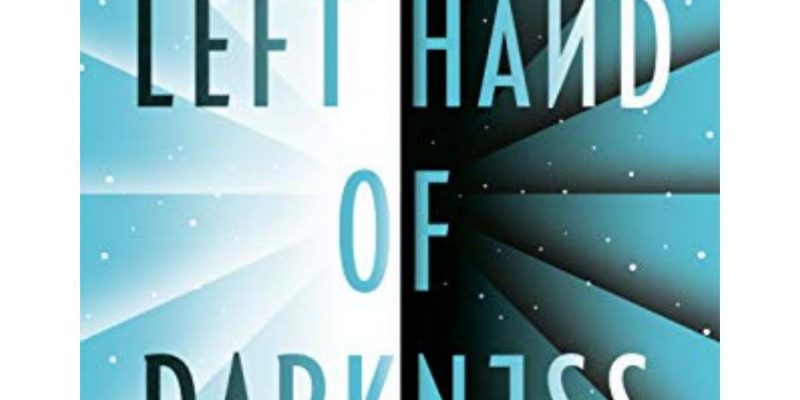This month, I attended a virtual conference on Christianity & Science Fiction. The conference featured academic presentations on religious connections in science fiction literature. The two-session forum was hosted by the Michigan Center for Early Christian Studies in partnership with the Department of Middle East Studies (University of Michigan). Religion in science fiction is a growing field of interest. This conference focuses on presentations by biblical scholars and religious scholars from global contexts.
Maria Doerfler (Yale University) discussed ritual in the novel Amatka by Karin Tidbeck. The story follows a protagonist in a dystopian future society. Doerfler aligns her analysis with a question about how we will engage religious rituals in a post-pandemic world.
Juli Gittinger (Georgia College and State University), author of Personhood in Science Fiction, talked about the tv series DEVS (streaming on HULU), focusing on the story’s emphasis on free will. Gittinger presents various theological approaches to the idea of free will. The first is Theological Determinism, the idea that God ordains the world and has absolute foreknowledge of all the actions of humanity. The second is Causal Determinism; everything follows from an original condition. DEVS, an abbreviation for “Developers,” is a series about an experimental community that seeks to understand determinism and the nature of free will. The series unapologetically presents the life of Jesus Christ as a clear example of theological determinism. Christ’s life was predetermined and happened as it was willed by God.
Gavin McDowell (KU Leuven) explored science fiction and theology in the Manga Neon Genesis Evangelion. The Japanese creators of the series used Christian and Judaic imagery because it felt exotic and held mythological value. McDowell believes many of the references use imagery based on apocryphal stories rather than canonical representation. For example, he cites the use of a spear piercing the side of a crucified Christ, the image of the Holy Grail, and allusions to imagery often tied to the New Testament book of Revelations. Many are Judaic, including the Kabbala, Tree of life, and other symbols connected to Jewish Mysticism.
Uncovering religious representations in popular culture is significant because it represents casual interpretation of religious ideals. Furthermore, religious virtues tend to communicate, and even guide, ethical morality in a persons’ world. The unstated premise is the inevitability that the masses will receive religious education by means of popular fiction, film, and video games rather than from authoritative religious institutions, against which there seems to be growing animosity in main stream culture. This idea of the populous absorbing religious ideas from artistic venues is not new, of course, it is a long-standing historical tradition, markedly in medieval arts, including stained-glass window displays, and other artistic works meant to portray biblical values and teach religious virtues to illiterate masses.
Fiction offers a forum to explore higher order questions about the meaning of life and existence. Science fiction is a particular genre with a tradition of questioning mainstream and political religious ideals. many times this is done either by removing human civilization from its present context and play out familiar scenarios in otherworldly contexts or by casting the time line somewhere in the distant future.
This conference demonstrates a wide scholarly interest in philosophical and religious themes that appear frequently in science fiction literature. More to come!
To read more of my reflections on science fiction, visit the Sci-fi Topic page on my blog.

Dr. Erica Mongé-Greer, holding a PhD in Divinity from the University of Aberdeen, is a distinguished researcher and educator specializing in Biblical Ethics, Mythopoeia, and Resistance Theory. Her work focuses on justice in ancient religious texts, notably reinterpreting Psalm 82’s ethics in the Hebrew Bible, with her findings currently under peer review.
In addition to her academic research, Dr. Mongé-Greer is an experienced University instructor, having taught various biblical studies courses. Her teaching philosophy integrates theoretical discussions with practical insights, promoting an inclusive and dynamic learning environment.
Her ongoing projects include a book on religious themes in the series Battlestar Galactica and further research in biblical ethics, showcasing her dedication to interdisciplinary studies that blend religion with contemporary issues.



